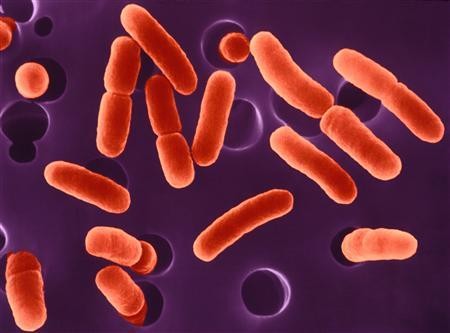Two new studies explain how genetically modified (GM) bacteria can detect cancer tumors and diabetes in mice. The GM bacteria "biosensors" could also be used as remote diagnostic tools for medical patients.
The first study at the Massachusetts Institute of Technology (MIT) and University of California-San Diego was published in the journal Science Translational Medicine. Scientists used modified E.coli bacteria as an organic sensor to detect cancer tumors in a mouse body.
Normally E.coli can move through gut walls and live in liver tumors. However, the GM bacteria manufactured an enzyme that changed the mouse urine's color, as a type of early warning system for cancer detection.
Within 24 hours the GM E.coli provided visible evidence of cancer tumors in mice. Scientists must test if the new method would work in humans, whose gut microorganisms are very different than mice's.
In the second study at Stanford University and University of Montpellier (France), the researchers used the GM bacteria to examine glycosuria (urine sugar) in humans, as diabetes detection. The GM E.coli made urine red in 89 percent of cases in which glycosuria existed, according to Reuters. The medical sensors only made a wrong diabetes diagnoses in 3 percent of the cases.
The researchers stated that their research is critical in improving medical diagnoses and the treatment of various diseases. Such ailments are often undetected for a long time.
Jérôme Bonnet, the second study's lead researcher, said that their urine test for diabetes will probably not replace current diagnostic tools, according to Yahoo. However, it could lead to other markers for natural detection systems.
The researchers' next objectives will include using their urine test to detect other types of cancer. They will also try to find hard evidence that their GM E.coli bacteria are safe and effective in humans.
Jessica Tucker, a bioengineering researcher, told the LA Times that the new studies combine synthetic biology with biosensor applications. One day doctors in remote clinics could use the bacteria "sensors" to treat and diagnose several diseases.



























